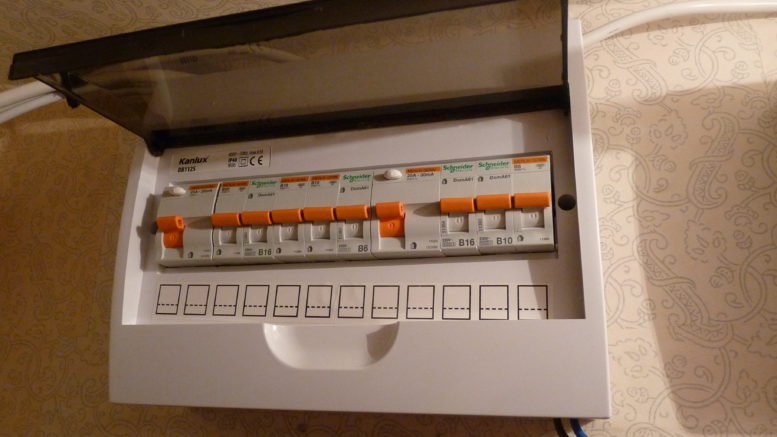Mandatory electrical safety checks are to be introduced. It has been tossed into the ether many times over the years, but it has taken the tragedy of the Grenfell Tower fire to finally prompt legislation that will make mandatory electrical safety checks law.
Although a date for the implementation of this has not yet been announced, we can be certain that it will become law at some time in the near future. In measures announced on 19th July, plans were outlined that will mean that private sector landlords will have to have all electrical installations in a property inspected and certified as safe every 5 years.
Dame Judith Hackitt was asked to undertake an Independent Review of Building Regulations and Fire Safety which was completed and published earlier this year; she has made recommendations, as she believes that the current fire safety systems are ‘not fit for purpose’.
James Brokenshire, the Secretary of State for Communities announced that ‘Approved Document B’ will be a full-scale review of fire safety matters within and around buildings. This will take into consideration modern building practices and improvements which may be needed, any innovative technical and scientific changes and the most recent understanding of fire risks.
The mandatory electrical safety checks are not the only changes to be introduced.
– A residents’ panel will ensure the proposed safety improvements are based on the opinions of tenants in high rise buildings (often felt to be the vital, but usually unheard view);
– An Industry Safety Steering Group will be established, under the chair of Dame Judith, with the aim of driving forward the industry into a safer and more accountable manner of working;
– There will be consultative work with industry organisations to pilot safety improvements as suggested by Dame Judith’s recommendations; it must be clearly shown that the industry is in favour of building safety reform.
Despite the Secretary of State for Communities’ short time in post, he seems to be committed to improving safety standards and nailed his colours to the mast when he said ‘there is nothing more important that ensuring people are safe in their own homes’.
With this in mind, the Government have made further plans.
– There will be a consultation, to close on 14th August, about the proposal to ban combustible materials on the exterior of high-rise buildings which are above 18 metres or more.
– A consultation which has already closed was about banning or restricting the use of ‘desktop studies’ to assess the fire safety performance of cladding systems; they may be used in conjunction with further consultation which shows they are safe.
– The Government will make available £400 million for local authorities and housing associations can apply for, to fund the replacement of Aluminium Composite Material cladding.
– Finally, the private sector gets a mention, in that local authorities will have support to work with private sector landlords who own high rise buildings with suspect cladding.
No-one can argue with any steps that improve fire safety; no-one wants the horror of Grenfell Tower re-visited in any of our cities. But the private sector should not be treated as an after-thought.
No money has been offered to them to ensure the highest possible fire safety standards are maintained. The cost of 5-yearly tests is negligible, but will the guidance be sufficient? Are appliances supplied by the tenant the landlords’ responsibility to test? Or is the fire safety only to apply to the exterior walls? What about tenants who go to the local market and buy cheap, foreign import electrical items? How will the new legislation help avoid the possibility of fire?
Legislation to ensure that external cladding is essential and welcomed; how much will be achieved by electrical safety checks being undertaken every 5 years is perhaps questionable, simply because the portability of electrical appliances makes it difficult to be sure that they are safe to use on an on-going basis.
The fire that started this was in the social sector, but private landlords will have to pay the price of regular safety checks, though the current legislation will already demand better standards for private sector properties than in the social sector.
For advice on buy to let issues – General Knowledge








Be the first to comment on "Mandatory Electrical Safety Checks"